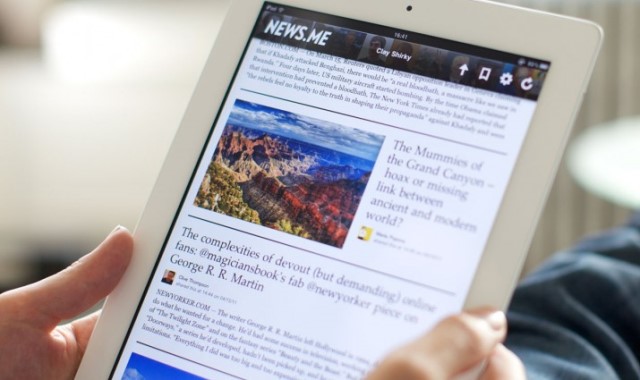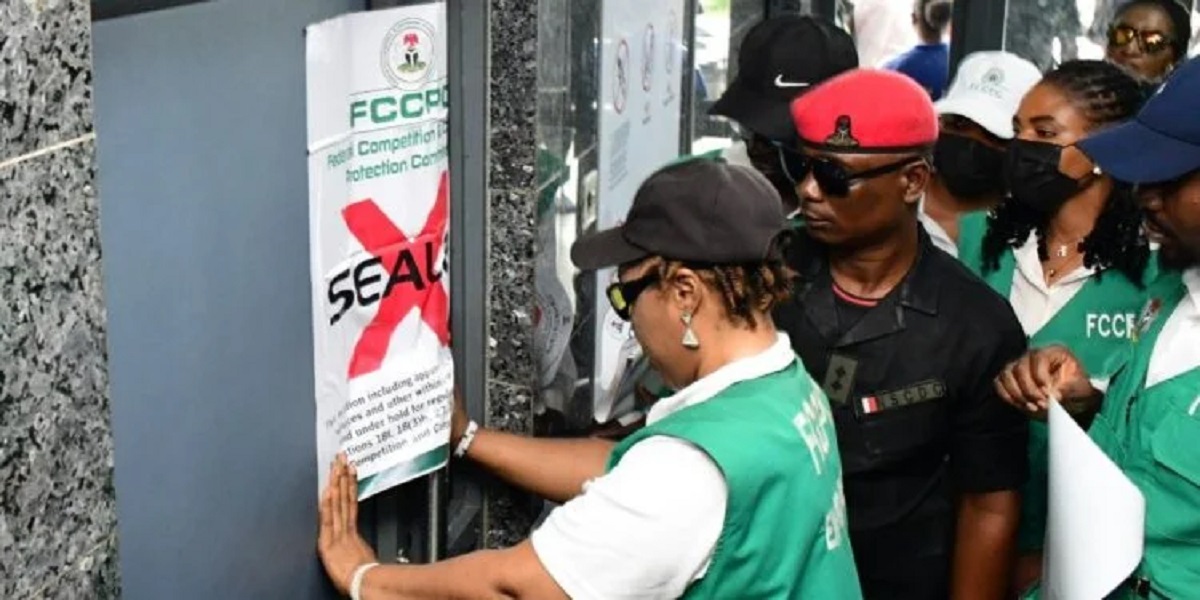News
Nigeria, Others Emerge Highest Mobile Online Reading Population – Report

African mobile users have spent an average of over four million hours reading books on their mobile phones so far in 2018, representing a 32% increase from 2017.
This is according to a survey conducted by Web browser company, Opera Mini, in partnership with global literacy non-profit, Worldreader, in light of World Literacy Day on 8 September.
The research provides insights into the mobile reading habits of almost two million Worldreader app users on the African continent. In addition, Opera Mini ran an online survey of 1 500 women and men aged 14 to 44 from various parts of the Africa continent, to learn more about their Web browsing habits on their mobile phones.
The study reveals that Nigeria, SA and Ivory Coast are the countries with the highest mobile and online reading populations in 2018.
Furthermore, 65% of mobile readers on the continent are men, while 35% are women. The study reveals women in African countries are as tech-savvy as men, when it comes to browsing the Internet using their mobile phones.
“Women are using their browsers as often as men; with the majority of female survey respondents in Kenya and Nigeria (60%) stating they access their mobile browsers more than eight times a day. Furthermore, women tend to spend 11.5 minutes reading on average, while men read 6.5 minutes per session, making women more frequent readers.
“On average, there are more than 414 000 monthly e-book readers across the African continent, with most readers preferring books related to love and romance, especially those that come from local authors and publishers,” it notes.
According to the study, millions of people do not read for one reason: they do not have access to text. However, mobile phones and cellular networks are transforming a scarce literacy resource into an abundant one.
“Mobile technology is significantly advancing literacy and learning in underserved communities around Africa. Affordability of mobile phones together with the data saving technology have been key to the increase in access to free electronic books,” it points out.
Smartphone access
According to Zenith’s Mobile Advertising Forecasts 2017, in 2018 around 66% of individuals in an array of 52 developed and developing countries, including SA, will own a smartphone. This number, according to the report, represents a 63% increase from 2017 and a 58% increase from 2016.
However, the rapid expansion of smartphone ownership across the world is expected to slow down as penetration reaches 80%-90% in the most advanced markets, notes the study.
According to the latest report of Groupe Sp’eciale Mobile Association (GSMA), “The Mobile Economy Sub-Saharan Africa 2018”, at the end of last year, there were more than 444 million unique mobile subscribers and 250 million smartphone users in Sub-Saharan Africa. These numbers represent a big opportunity to bring reading to millions in the region through technology, says GSMA.
“We know that mobile phone affordability and the convenience of owning one are two big reasons why we are seeing more and more people accessing our e-book collection through their mobile devices in Africa,” says Colin McElwee, co-founder of Worldreader.
“Our partnership with Opera Mini is a perfect match. With Opera browser being the number one choice for mobile users across Africa, it provides an incredible opportunity to get people reading.”
GSMA predicts 80% of the 800 million people in Sub-Saharan Africa will have a mobile device by 2020, pushed by the growing popularity of over-the-top services and mobile banking.
E-books collaboration
Opera Mini has developed e-books technology that compresses text and images to 10% of their original size, reducing data consumption and the cost of data on a mobile phone and allowing users to spend more time reading and downloading books when using Worldreader.
The partnership between Opera and Worldreader started in 2015 with the aim of bringing free e-books to millions of mobile users in Africa through Opera Mini’s affordable mobile browser.
“We are very happy to contribute to literacy in Africa with our Opera Mini browser as we give mobile users access to Worldreader’s vast library of great books,” says Jan Standal, VP of product marketing and communications at Opera.
“Since we started this partnership, we have added more than nine million new readers in Africa who now enjoy books from different genres such as romance, adventure and education, among others.”
News
DBN Awards N13m in Grants to Tech Startups

Development Bank of Nigeria (DBN) has awarded a total of N13 million in grants to three standout tech startups at the 2025 Techpreneur Summit held in Lagos, reinforcing its commitment to innovation and inclusive growth among Nigeria’s micro, small, and medium enterprises (MSMEs).

The winners include: BuyScrap, a digital marketplace for recyclable materials – N6 million; Qiqi Farms, which connects local farmers to hospitality and export markets – N4 million; Eco-Cyclers, a youth-led recycling initiative based in Enugu – N3 million
Alongside the grant awards, DBN also launched a new digital data asset, a first-of-its-kind platform aimed at enabling data-driven decisions within the MSME ecosystem.
The platform offers deep insights into business trends, sector-specific challenges, and growth opportunities—supporting smarter policymaking and targeted investments.
In his keynote address in Lagos, Tony Okpanachi, managing director/ CEO, DBN, described the event’s theme, “CTRL + SHIFT: Tech Empowered Movement for Naija,” as a strategic call to reimagine enterprise development in Nigeria.
“This isn’t just a keyboard shortcut,” he said. “It’s a mindset reset—powered by technology—to build a more inclusive, innovative, and resilient business landscape. From financing to innovation, DBN remains committed to enabling MSMEs to thrive.”
Okpanachi emphasized that the Summit aligns with DBN’s AMPLIFI Strategy, which integrates digital transformation, sustainability, and scalability into its core programs.
He highlighted initiatives such as the Digital Shift Workshops and the Eco-Innovation Challenge as key steps toward embedding innovation in Nigeria’s MSME sector.
Encouraging young innovators, he added: “The future belongs to those bold enough to imagine and build it. DBN is proud to support the ideas that will shape tomorrow.”
A major highlight was the unveiling of the DBN Data Asset—a digital platform designed to provide real-time, evidence-based insights into Nigeria’s MSME landscape.
The platform combines DBN’s proprietary data with external sources like the National Bureau of Statistics (NBS) to offer a comprehensive view of MSME performance by region and sector.
Jeremy Dan Okayi, DBN’s Head of Strategy, Policy & Innovation, described the platform as: “A reservoir of insight, potential, and direction—built on two years of collaboration and shared vision. This tool will support informed decision-making across the public and private sectors.”
News
FCCPC Shuts France, Belgium, and Italy Visa Centres in Abuja Over Alleged Consumer Rights Violations

In a bold enforcement action, the Federal Competition and Consumer Protection Commission (FCCPC), supported by the Nigeria Police Force and the Nigeria Security and Civil Defence Corps (NSCDC), has sealed off the visa application centres of France, Belgium, and Italy in Abuja over alleged consumer protection breaches and obstruction of regulatory investigations.

The affected centres—located at Mukhtar El-Yakub House in the Central Business District and operated by TLS Contact, a Teleperformance Company—were shut down following reports that they refused to accept formal correspondence from the FCCPC regarding a consumer complaint. The Commission cited further infractions, including obstruction of investigation and alleged assault of its officers during lawful duties.
Speaking to journalists at the scene, Mrs. Boladale Adeyinka, Director of Surveillance and Investigations at the FCCPC, explained: “This is an enforcement operation against TLS. On March 25, 2025, we served them a letter to address a consumer complaint, which they refused to accept. Instead, TLS officers assaulted our team, and in a subsequent visit on June 17, they also allegedly assaulted uniformed police officers.”
Citing Section 33 of the Federal Competition and Consumer Protection Act (FCCPA), Mrs. Adeyinka emphasized that failure to comply with Commission directives constitutes a criminal offense, punishable by imprisonment, fines of up to ₦20 million, or both.
TLS has been ordered to appear before the Commission on June 20, 2025, to provide testimony, submit evidence, and make formal depositions. The company may be held liable for any financial losses suffered by applicants due to the disruption of visa services.
Despite multiple requests for comment, management at TLS Contact declined to respond as of press time.
News
How and Why N210 Trillion is Missing in NNPCL – CFO

Adedapo Segun, chief financial officer (CFO), Nigerian National Petroleum Company Limited (NNPC), has explained why there is a missing sum of N210 trillion in the company’s audited financial statement spanning from 2017 to 2023.

According to Segun, the missing funds are cash calls requested by joint venture (JV) partners and settlement to the JVs.
He spokeat a session of the Senate Committee on Public Accounts chaired by Aliyu Wadada.
Segun was responding to an alarm raised by the committee over missing N210 trillion in NNPCL’s audited financial statement.
Recall that Wadada issued a one-week ultimatum to NNPCL to account for the missing N210 trillion.
Reacting, Segun said, “The N103 trillion and N107 trillion are made up of joint venture cash calls that have been requested by the JV operators and JV cash call payments made by NNPCL, which are yet to be reconciled because governance procedures were not done at that time.
“That is why you see the description reflecting those two items would be washed out because they are two sides of the same transaction, which is the cash calls by JV partners and the settlement by NNPCL.”
However, Habu Sadeik, a financial analyst, in a post on X on Thursday, said Segun’s response was unsatisfactory.
Saidik faulted NNPCL’s response about the fund discrepancies, noting that something is not right with the audited financial statement.
“Forget about the senators’ lack of knowledge.
“The CFO’s response is not satisfactory. Are you saying that cash calls worth hundreds of trillions are just appearing on your FS only in 2024 without 31 disclosure?
“If it’s a cash call, why hasn’t the disclosure said so?
“Which cash call is over 100 trillion?
“Something is definitely not right, and I hope they retrospectively correct that FS.
“Someone somewhere did a chef’s work,” he wrote on X.

 General News2 days ago
General News2 days agoNASRDA, Galaxy Space Firm Sign MoU on Satellite Connectivity

 Telecom2 days ago
Telecom2 days agoOver 1m Nigerians Reached through MTN Staff’s Digital and Community Outreach

 Telecom2 days ago
Telecom2 days agoMafab Gets 0724 Number Series, Launches Mcom 5G Brand

 News2 days ago
News2 days agoDBN Awards N13m in Grants to Tech Startups

 Telecom2 days ago
Telecom2 days agoNCC to Name, Shame Telecom Infrastructure Vandals

 News2 days ago
News2 days agoFCCPC Shuts France, Belgium, and Italy Visa Centres in Abuja Over Alleged Consumer Rights Violations

 Telecom2 days ago
Telecom2 days agoWSIS Review: Nigerian ICT Leaders Urged to Shape Global Digital Future

 E-Financial2 days ago
E-Financial2 days agoBank Customers Petition CBN over Illegal Deductions, Demand Action




























